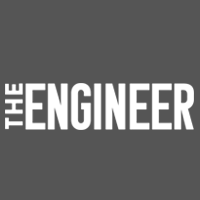Media Watch
Research team develops low-cost, accurate COVID-19 antibody detection platform
Phys.org -
A robust, low-cost imaging platform utilizing lab-on-a-chip technology created by University of California, Irvine scientists may be available for rapid coronavirus diagnostic and antibody testing throughout the nation by the end of the year. … UCI investigators Weian Zhao, Per Niklas Hedde, Enrico Gratton and Philip Felgner believe that their new technology can help accelerate the testing process quickly and affordably. Read More
UCI researchers hacked solar inverters using just $50 worth of equipment
LEED Points -
Cyber-physical systems security researchers at the University of California, Irvine can disrupt the functioning of a power grid using about $50 worth of equipment tucked inside a disposable coffee cup. In a presentation delivered at the recent Usenix Security 2020 conference, Mohammad Al Faruque, UCI associate professor of electrical engineering & computer science, and his team revealed that the spoofing mechanism can generate a 32 percent change in output voltage, a 200 percent increase in low-frequency harmonics power and a 250 percent boost in real power from a solar inverter. Al Faruque’s group in UCI’s Henry Samueli School of Engineering have made a habit in recent years of finding exploitable loopholes in systems that combine computer hardware and software with machines and other infrastructure. Read More
Microscopy adds to understanding mantis shrimp strength
The Engineer -
Now, University of California, Irvine materials science researchers discovered that the clubs have a uniquely designed nanoparticle coating that absorbs and dissipates energy. … “Think about punching a wall a couple thousand times at those speeds and not breaking your fist,” said David Kisailus, UCI professor of materials science & engineering. Read More
Dactyl Clubs of mantis shrimp could be the clue to make a lot more resilient surfaces
Aviation Analysis -
The UCI scientists have discovered out that the clubs comprise a nanoparticle coating that absorbs and disperses the vitality. … “Consider about punching a wall a few thousand situations at people speeds and not breaking your fist. Which is fairly impressive, and it bought us pondering about how this could be,” says David Kisailus, Professor of Supplies Science and Engineering, University of California, Irvine. Read More
Dactyl clubs of mantis shrimp could be the clue to create more resilient surfaces
AZO Nano -
The UCI scientists have found out that the clubs contain a nanoparticle coating that absorbs and disperses the energy. … “Think about punching a wall a couple thousand times at those speeds and not breaking your fist. That’s pretty impressive, and it got us thinking about how this could be,” [says] David Kisailus, Professor of Materials Science and Engineering, University of California, Irvine. Read More
UCI researchers hacked solar inverters using just $50 worth of equipment
Solar Builder Magazine -
Cyber-physical systems security researchers at the University of California, Irvine can disrupt the functioning of a power grid using about $50 worth of equipment tucked inside a disposable coffee cup. … Mohammad Al Faruque, UCI associate professor of electrical engineering & computer science, and his team revealed that the spoofing mechanism can generate a 32 percent change in output voltage … Read More
UCI researchers expose vulnerability of solar inverters
Solar Power World -
In a presentation delivered at the recent Usenix Security 2020 conference, Mohammad Al Faruque, UCI associate professor of electrical engineering and computer science, and his team revealed that the spoofing mechanism can generate a 32% change in output voltage … “Without touching the solar inverter, without even getting close to it, I can just place a coffee cup nearby and then leave and go anywhere in the world, from which I can destabilize the grid,” Al Faruque said. Read More
Status Update: Raising Canes, Grocery Outlet raise money for the needy
Orange County Register -
The Advanced Casting Research Center has relocated to UC Irvine, effective July 1, moving from the Worcester Polytechnic Institute in Massachusetts. Diran Apelian, ACRC’s founding director, was recently appointed as distinguished professor at UCI’s Department of Materials Science and Engineering. He retired earlier this summer from his position as Alcoa-Howmet professor of mechanical engineering at WPI after 30 years. [Subscription required, you can request an electronic copy of the article by sending an email to communications@uci.edu.] Read More
Mantis shrimp's dactyl clubs could hold secrets to more resilient surfaces for human use
Phys.org -
University of California, Irvine materials science researchers are learning about resilience from the mantis shrimp. The ancient crustaceans are armed with two hammerlike raptorial appendages called dactyl clubs that they use to bludgeon and smash their prey. These fists, able to accelerate from the body at over 50 mph, deliver powerful blows yet appear undamaged afterward. … "Think about punching a wall a couple thousand times at those speeds and not breaking your fist," said David Kisailus, UCI professor of materials science & engineering, who has been studying the mantis shrimp for more than a decade. Read More
New framework for evaluating snow droughts around the world
National Science Foundation -
Scientists at the University of California, Irvine, have developed a new framework for characterizing snow droughts around the world. … "Snow is an important global water resource that plays a vital role in natural processes, agriculture, hydropower and the basic socioeconomic conditions of various regions," said lead author Laurie Huning. "While other forms of drought are well-studied, variations in snow droughts on a global scale have been examined to a far lesser extent until now." Read More









